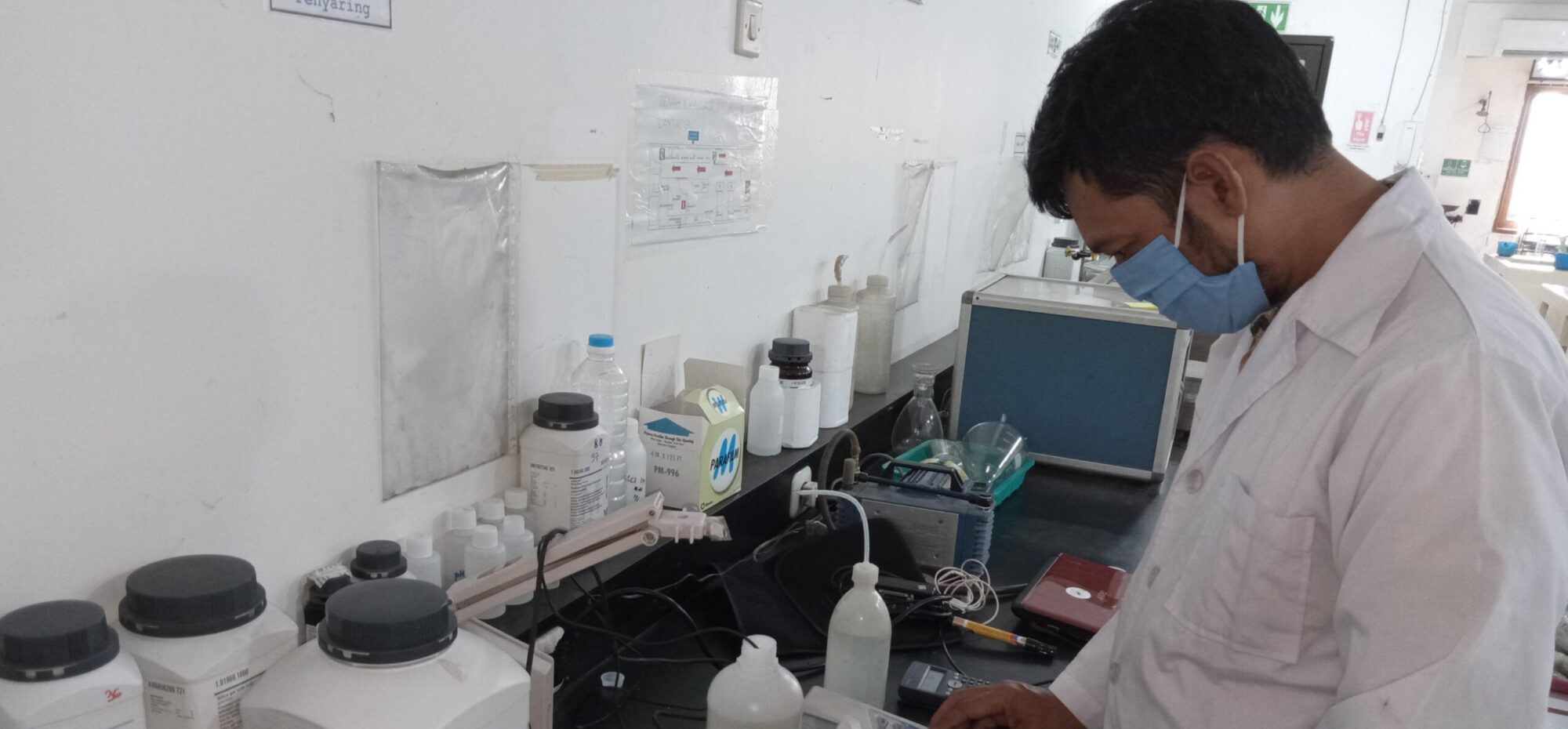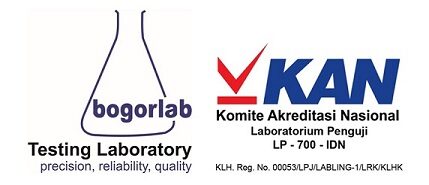Nutrition must remain a priority even amid a recession, experts urge
Amid a pandemic and belt-tightening times, smart food choices can bolster immunity; the key is to have a diverse diet and use your calories wisely by selecting micronutrient-filled foods.
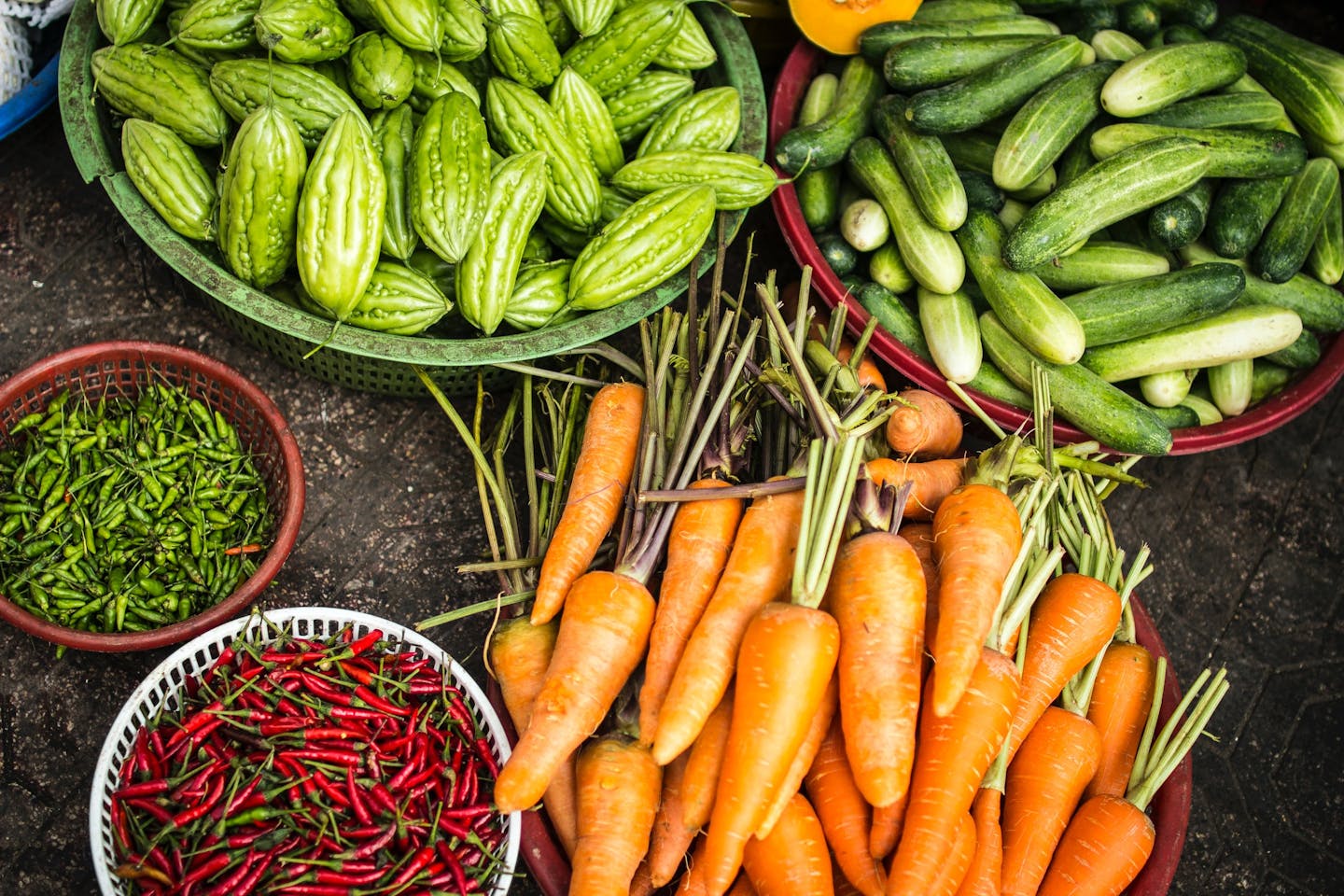
Brought to you by:

By Eveline GanJuly 6, 2020
The impact of Covid-19 on global food supply chains and access to food has been vast.
Lockdowns imposed by many governments to control the outbreak have also caused many businesses—in some cases, entire industries such as tourism—to shut, driving millions out of work and their households into financial insecurity.
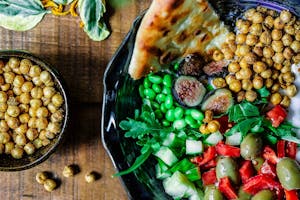
FOOD & AGRICULTURE
How food systems can tackle malnutrition while healing the planet
In a world set to face challenging economic times, eating healthily must remain a priority even when on a tight budget, nutrition experts told Eco-Business.
Even without the threat of Covid-19 infection, eating well helps keep the immune system running efficiently. Diets have a direct impact on health and the body’s ability to ward off or recover from illnesses.
For instance, it is well-established that poor diets are linked to chronic diseases, such as Type 2 diabetes and cardiovascular disease, which are currently the leading causes of poor health and deaths worldwide.
Mounting evidence also shows that people with these pre-existing conditions fare worse and have a higher risk of dying when they contract Covid-19 and other infections.
Say ‘no’ to empty calories
A rule of thumb for healthy eating is to have a well-rounded, diverse diet filled with nutritious foods from various sources, said food and nutrition experts Regina Moench-Pfanner and Janelle Limqueco.
Diets lacking important nutrients can impair the immune system’s ability to function normally, said Limqueco, a product manager at Singapore food technology firm NamZ who is trained in food science and technology.
It is all the more important now [in the midst of a pandemic] to minimise intake of empty calories—junk food with little nutritional value—as much as possible.
Janelle Limqueco, product manager, NamZ
“It is all the more important now [in the midst of a pandemic] to minimise intake of empty calories—junk food with little nutritional value—as much as possible,” she said. “It is best to use your calories wisely by filling them up with micronutrient-filled foods.”
Micronutrients are vitamins and minerals that are not produced by the body, but are required in small amounts. Those scientifically proven to support the immune system include vitamins A, B-vitamins, C, D, E and folate as well as trace minerals such as iron, copper, zinc and selenium.
“The key here is that these micronutrients need to be eaten every day, and you can only get them if you consume a diversified diet, represented in a ‘colourful plate’, meaning that foods of one colour should not dominate the plate,” said Moench-Pfanner, the founder and chief executive of ibn360, a consulting firm specialising in food, nutrition and health.
There is also emerging evidence that links gut health to immune response. “Our immune system has co-evolved with our gut microbiota, which is important in regulating our immune responses. Consuming fibre could therefore be helpful in boosting the immune system too,” said Limqueco.
Using knowledge to overcome barriers
But barriers such as affordability, lack of access to nutritious foods and poor nutrition awareness can stand in the way of a nutritious and diverse daily diet, said Moench-Pfanner.
In some low-income countries in Asia for example, rice might make up 70 per cent of the daily energy intake, which is not optimal, she said.
“If you are a good cook and have the knowledge to cook nutritious foods, such as vegetables, pulses, beans, cereals, nuts and some meat, in a way that is appealing to the family, then you can manage even on a low budget to have a nutritious diet,” Moench-Pfanner said.
“However, if this knowledge is not available, you will fall back mainly on staples like wheat, rice and maize, which do not offer a lot of bio-available micronutrients.”
If you are a good cook and have the knowledge to cook nutritious foods, such as vegetables, pulses, beans, cereals, nuts and some meat, in a way that is appealing to the family, then you can manage even on a low budget to have a nutritious diet.
Regina Moench-Pfanner, founder and chief executive, ibn360
Smart food choices need not always involve a hefty price tag. For instance, rice and beans are one of the most affordable yet healthiest food combinations available in the region, Limqueco said.
Beans are rich in protein, fibre as well as micronutrients, folate, iron, and copper. Together with rice, they provide a complete source of essential amino acids, she said. They also incur much smaller carbon footprint than animal protein.
Other than rice and beans, Limqueco said that green leafy vegetables are probably the next best bang-for-your-buck whole-food option.
While varieties can range from the humble Chinese spinach to the more premium kale and rocket salads, most leafy greens are nutrient-dense and contain vitamins A, C, K, folate, iron, and B-vitamins.
“It is possible to have a rice, beans and leafy greens meal for S$2 (US$1.40) or even less,” Limqueco said.
While a diverse diet of natural whole foods is key to healthy eating, Limqueco said that eating well need not be an “all-or-nothing” approach. Depending on the circumstances and situation, a more practical approach may sometimes be required, for instance, when time or access to fresh food items are limited.
“Some of us might not even have time to cook at home while juggling multiple calls. For others, juggling kids and work makes time even more limited,” she said. In such situations, consumers would need to pick the healthiest option available.
Healthier and more sustainable convenience foods
NamZ, which specialises in nutritious comfort food, has rolled out a range of instant noodles, shakes and soups that aim to be positive for people and planet under the brand WhatIF Foods.
Its instant noodles, for instance, are dehydrated using a proprietary process similar to air-frying that reduces the fat content by at least 55 per cent. Ingredients include future-fit crops such as the Bambara groundnut and moringa, which are climate-resilient and can grow on poor soil or marginalised or degraded land, opening up income opportunities for smallholder famers.
The crops are also nutrient-dense. For instance, WhatIF’s moringa and Bambara groundnut noodles both contain iron—an essential mineral necessary for normal immune system function—as well as two to three times more fibre than popular deep-fried instant noodle brands in Singapore.
Each portion of the Bambara groundnut noodles contains as much protein as two eggs, but without the cholesterol as the noodles are entirely plant-based.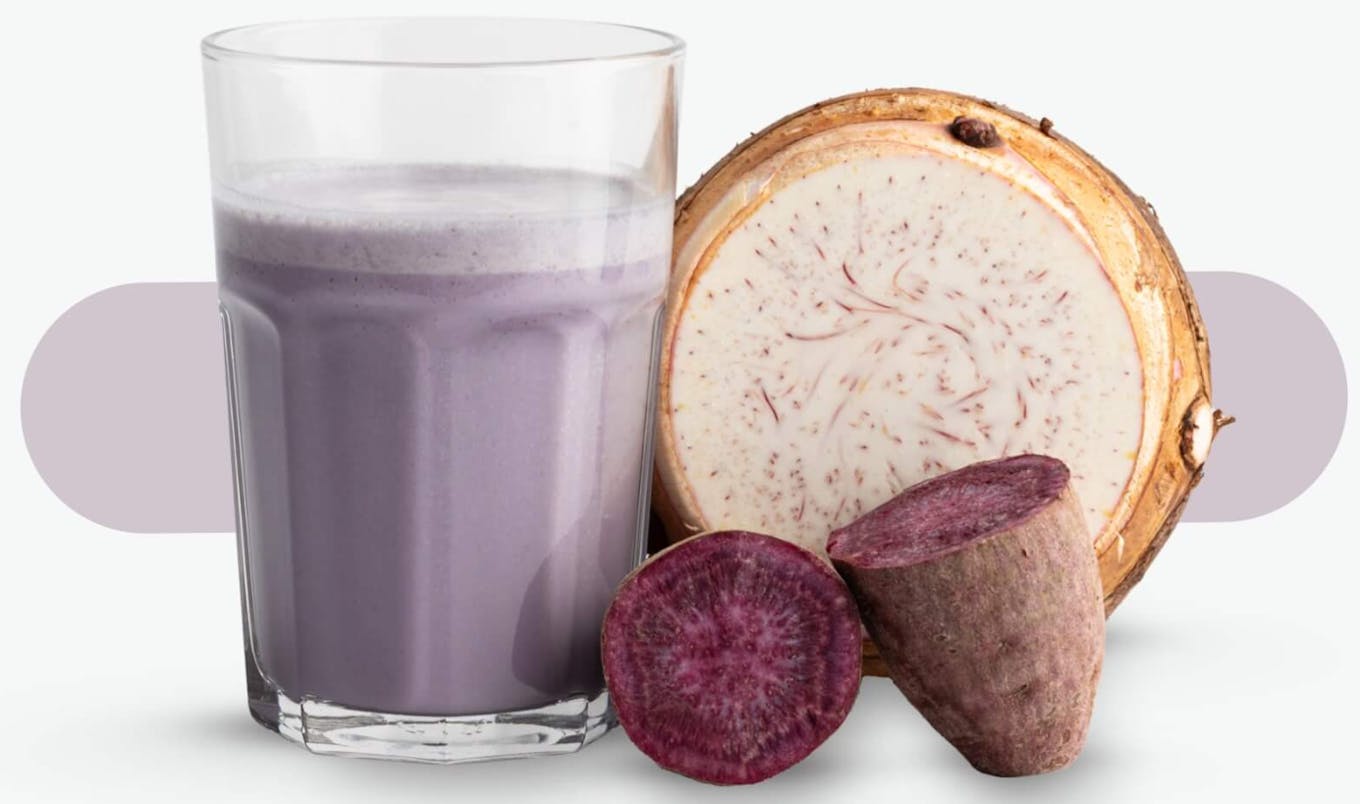
WhatIF’s Ube shake. Image: WhatIF Foods
For its soups and shakes, NamZ teamed up with Austrian health supplement company Biogena to incorporate essential immune-boosting micronutrients, adding to their already-balanced macronutrient profile.
NamZ co-founder Christoph Langwallner said the collaboration with Biogena came about due to their shared interest in solutions to the nutritional paradox, which refers to the paradoxical trends of hunger, obesity, undernutrition and environmental degradation.
Michael Waeger, science team leader at Biogena, said the company has almost 15 years of experience in the field of nutritional supplements and nutritional medicine. For the collaboration, both companies took into account the needs of the general population as well as groups that have increased nutritional needs, he said.
They used vitamin and mineral compounds with a high bioavailability, which refers to the quantity of the ingested dose that is absorbed in the gut and can be used by the body, Waeger added.
The micronutrients in WhatIF’s soups and shakes include selenium, zinc and vitamins D and C. A study published in April in the peer-reviewed journal Nutrients found that vitamins D and C, along with other micronutrients, may confer protective benefits against Covid-19.
And studies have shown that even short-term supplementation of zinc can reduce the incidence and duration of infections of the lower respiratory tract, Waeger said.
Wider efforts needed to ensure food security
Apart from individual efforts to eat well and stay healthy, other experts have called for wider efforts to ensure food security and access to nutrition amid the pandemic. Governments should work together and ensure that short-term measures to restrict trade should not distort global markets, international agencies including the United Nations’ Food and Agriculture Organisation have urged.
More investments are also needed to increase the resilience of food systems and prevent future infectious disease outbreaks, they said.
Governments must also support the poor, vulnerable and those whose incomes have been hit. “Implementing adequate social protection measures, such as cash transfers, and investing in early recovery efforts in response to Covid-19 is critical to saving both lives and livelihoods. Ensuring that these measures reach everyone will be key to avoid further spread of poverty and hunger,” the agencies said.
